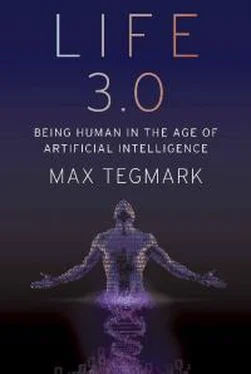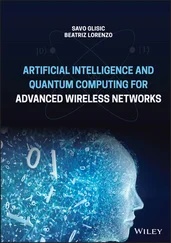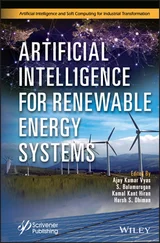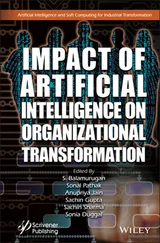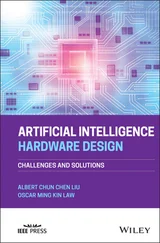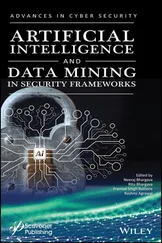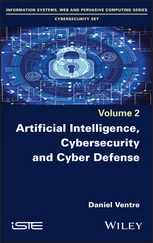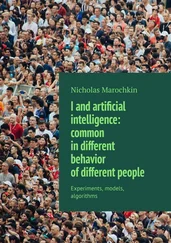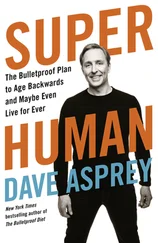*5 Although I’ve earlier used “perceptronium” as a synonym for sentronium, that name suggests too narrow a definition, since percepts are merely those subjective experiences that we perceive based on sensory input—excluding, for example, dreams and internally generated thoughts.
*6 There’s potential tension between this claim and the idea that consciousness is substrate-independent, since even though the information processing may be different at the lowest level, it’s by definition identical at the higher levels where it determines behavior.
Epilogue The Tale of the FLI Team
The saddest aspect of life right now is that science gathers knowledge faster than society gathers wisdom.
Isaac Asimov
Here we are, my dear reader, at the end of the book, after exploring the origin and fate of intelligence, goals and meaning. So how can we translate these ideas into action? What concretely should we do to make our future as good as possible? This is precisely the question I’m asking myself right now as I sit here in my window seat en route from San Francisco back to Boston on January 9, 2017, from the AI conference we just organized in Asilomar, so let me end this book by sharing my thoughts with you.
Meia is catching up on sleep next to me after the many short nights of preparing and organizing. Wow—what a wild week it’s been! We managed to bring almost all the people I’ve mentioned in this book together for a few days to this Puerto Rico sequel, including entrepreneurs such as Elon Musk and Larry Page and AI research leaders from academia and companies such as DeepMind, Google, Facebook, Apple, IBM, Microsoft and Baidu, as well as economists, legal scholars, philosophers and other amazing thinkers (see figure 9.1). The results superseded even my high expectations, and I’m feeling more optimistic about the future of life than I have in a long time. In this epilogue, I’m going to tell you why.
FLI Is Born
Ever since I learned about the nuclear arms race at age fourteen, I’ve been concerned that the power of our technology was growing faster than the wisdom with which we manage it. I therefore decided to sneak a chapter about this challenge into my first book, Our Mathematical Universe, even though the rest of it was primarily about physics. I made a New Year’s resolution for 2014 that I was no longer allowed to complain about anything without putting some serious thought into what I could personally do about it, and I kept my pledge during my book tour that January: Meia and I did lots of brainstorming about starting some sort of nonprofit organization focused on improving the future of life through technological stewardship.
She insisted that we give it a positive name as different as possible from “Doom & Gloom Institute” and “Let’s-Worry-about-the-Future Institute.” Since Future of Humanity Institute was already taken, we converged on the Future of Life Institute (FLI), which had the added advantage of being more inclusive. On January 22, the book tour took us to Santa Cruz, and as the California Sun set over the Pacific, we enjoyed dinner with our old friend Anthony Aguirre and persuaded him to join forces with us. He’s not only one of the wisest and most idealistic people I know, but also someone who’s managed to put up with running another nonprofit organization, the Foundational Questions Institute (see http://fqxi.org), with me for over a decade.
The following week, the tour took me to London. Since the future of AI was very much on my mind, I reached out to Demis Hassabis, who graciously invited me to visit DeepMind’s headquarters. I was awestruck by how much they’d grown since he visited me at MIT two years earlier. Google had just bought them for about $650 million, and seeing their vast office landscape filled with brilliant minds pursuing Demis’ audacious goal to “solve intelligence” gave me a visceral feeling that success was a real possibility.
The next evening, I spoke with my friend Jaan Tallinn using Skype, the software he’d helped create. I explained our FLI vision, and an hour later, he’d decided to take a chance on us, funding us at up to $100,000 a year! Few things touch me more than when someone places more trust in me than I’ve earned, so it meant the world to me when a year later, after the Puerto Rico conference I mentioned in chapter 1, he joked that this was the best investment he’d ever made.

Figure 9.1: Our January 2017 Asilomar conference, the Puerto Rico sequel, brought together a remarkable group of researchers in AI and related fields. Back row, from left to right: Patrick Lin, Daniel Weld, Ariel Conn, Nancy Chang, Tom Mitchell, Ray Kurzweil, Daniel Dewey, Margaret Boden, Peter Norvig, Nick Hay, Moshe Vardi, Scott Siskind, Nick Bostrom, Francesca Rossi, Shane Legg, Manuela Veloso, David Marble, Katja Grace, Irakli Beridze, Marty Tenenbaum, Gill Pratt, Martin Rees, Joshua Greene, Matt Scherer, Angela Kane, Amara Angelica, Jeff Mohr, Mustafa Suleyman, Steve Omohundro, Kate Crawford, Vitalik Buterin, Yutaka Matsuo, Stefano Ermon, Michael Wellman, Bas Steunebrink, Wendell Wallach, Allan Dafoe, Toby Ord, Thomas Dietterich, Daniel Kahneman, Dario Amodei, Eric Drexler, Tomaso Poggio, Eric Schmidt, Pedro Ortega, David Leake, Seán Ó hÉigeartaigh, Owain Evans, Jaan Tallinn, Anca Dragan, Sean Legassick, Toby Walsh, Peter Asaro, Kay Firth-Butterfield, Philip Sabes, Paul Merolla, Bart Selman, Tucker Davey, ?, Jacob Steinhardt, Moshe Looks, Josh Tenenbaum, Tom Gruber, Andrew Ng, Kareem Ayoub, Craig Calhoun, Percy Liang, Helen Toner, David Chalmers, Richard Sutton, Claudia Passos-Ferriera, János Krámar, William MacAskill, Eliezer Yudkowsky, Brian Ziebart, Huw Price, Carl Shulman, Neil Lawrence, Richard Mallah, Jurgen Schmidhuber, Dileep George, Jonathan Rothberg, Noah Rothberg. Front row: Anthony Aguirre, Sonia Sachs, Lucas Perry, Jeffrey Sachs, Vincent Conitzer, Steve Goose, Victoria Krakovna, Owen Cotton-Barratt, Daniela Rus, Dylan Hadfield-Menell, Verity Harding, Shivon Zilis, Laurent Orseau, Ramana Kumar, Nate Soares, Andrew McAfee, Jack Clark, Anna Salamon, Long Ouyang, Andrew Critch, Paul Christiano, Yoshua Bengio, David Sanford, Catherine Olsson, Jessica Taylor, Martina Kunz, Kristinn Thorisson, Stuart Armstrong, Yann LeCun, Alexander Tamas, Roman Yampolskiy, Marin Soljačić, Lawrence Krauss, Stuart Russell, Eric Brynjolfsson, Ryan Calo, ShaoLan Hsueh, Meia Chita-Tegmark, Kent Walker, Heather Roff, Meredith Whittaker, Max Tegmark, Adrian Weller, Jose Hernandez-Orallo, Andrew Maynard, John Hering, Abram Demski, Nicolas Berggruen, Gregory Bonnet, Sam Harris, Tim Hwang, Andrew Snyder-Beattie, Marta Halina, Sebastian Farquhar, Stephen Cave, Jan Leike, Tasha McCauley, Joseph Gordon-Levitt. Arrived later: Guru Banavar, Demis Hassabis, Rao Kambhampati, Elon Musk, Larry Page, Anthony Romero.
The next day, my publisher had left a gap in my schedule, which I filled with a visit to the London Science Museum. After having obsessed about the past and future of intelligence for so long, I suddenly felt that I was walking through a physical manifestation of my thoughts. They’d assembled a fantastic collection of stuff representing our growth of knowledge, from Stephenson’s Rocket locomotive to the Model T Ford, a life-size Apollo 11 lunar lander replica and computers dating all the way from Babbage’s “Difference Engine” mechanical calculator to present-day hardware. They also had an exhibit about the history of our understanding of the mind, from Galvano’s frog-leg experiments to neurons, EEG and fMRI.
I very rarely cry, but that’s what I did on the way out—and in a tunnel full of pedestrians, no less, en route to the South Kensington tube station. Here were all these people going about their lives blissfully unaware of what I was thinking. First we humans discovered how to replicate some natural processes with machines, making our own wind and lightning, and our own mechanical horsepower. Gradually, we started realizing that our bodies were also machines. Then the discovery of nerve cells started blurring the borderline between body and mind. Then we started building machines that could outperform not only our muscles, but our minds as well. So in parallel with discovering what we are, are we inevitably making ourselves obsolete? That would be poetically tragic.
Читать дальше
